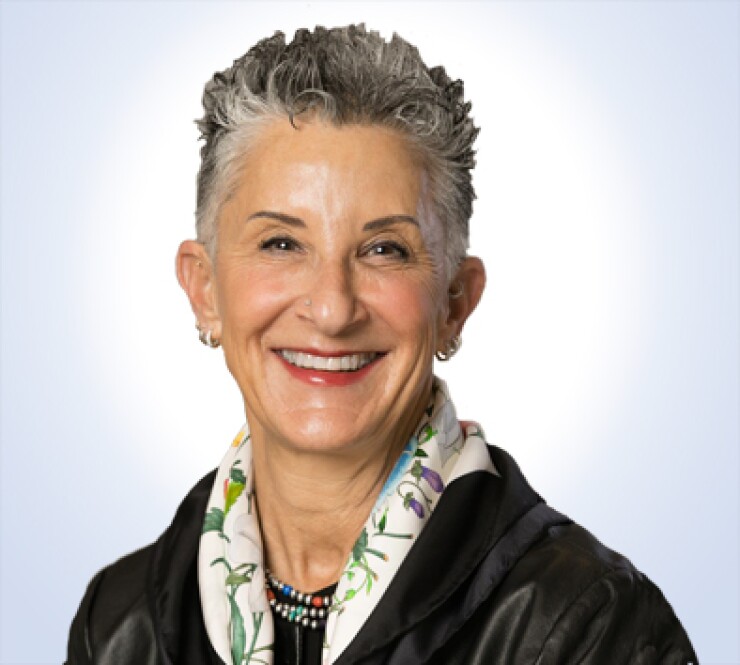Six years after same-sex marriage became legal and a decade after repeal of “don’t ask, don’t tell,” some LGBT Americans are still struggling to get their Social Security and veterans benefits.
It’s a test that President Joe Biden’s administration faces: how to prove its commitment to LGBT equality, including by deciding whether to appeal court rulings extending Social Security death benefits for spouses previously locked out of them or by improving the process for veterans seeking to upgrade dishonorable discharges under DADT to secure more federal services.
The questions display the link between a political issue involving civil liberties and the personal finances of clients. Roughly 3 million LGBT Americans are 50 or older, and one-third live at or below 200% of the federal poverty level,

“These are benefits that any other couple, a straight couple, don't even think about,” says financial advisor Marci Bair of San Diego-based Bair Financial Planning. “They have to put extra cost and energy into securing those benefits that are a right to them.”
Bair and advisor Lauren Sigman of Robertson Stephens’ Denver office warn longtime LGBT couples of the impact to government and employee benefits if they don’t get married. Besides the difficulties with Social Security and veterans benefits, they’re navigating barriers to child custody and tax-advantaged exchanges of property if they divorce, she says.
“We need to have a uniform application of these laws across the country,” Sigman says. “We have civil procedures and we need to be able to have those applied equally to all people… You feel like a second-class citizen, and you are.”

Supporting veterans
An estimated 114,000 veterans dishonorably discharged under DADT before its official end in September 2011 may use some Veterans Affairs Department clinics, but, due to their discharge status, they do not get access to the department’s full healthcare advantages or to other benefits such as home loans, burial services and the GI Bil’s educational support, according to Jennifer Dane, executive director of the
Dane’s organization is calling for inclusion of a provision in the next Congressional defense authorization bill to expand VA benefits to the group while
Just 4% of the LGBT veterans have managed to do so since the repeal of the policy, according to Dane. Notwithstanding
“There's just an added tax on discrimination,” Dane says. “It's a financial one but it's also an emotional impact… It's a systematic failure, that we're basically taxing a person for being gay.”
In addition to the difficulty upgrading their discharges, LGBT veterans in general often confront problems with health disparities, barriers to home loans and challenges with pension access for spouses of late veterans who had been with their partners prior to marriage legalization, according to Dane.
In an email response to a Financial Planning inquiry seeking additional data on LGBT veterans whose benefits remain affected by the prior DADT policy, VA spokesman Randal Noller said that the agency “has no jurisdiction on discharges; that’s entirely a Dept. of Defense issue.”
“However, it is important to know that VA stands ready to provide all veterans the benefits they have earned,” Noller said.
Representatives for the Defense Department didn’t respond to requests for comment.
Social Security benefits
The other crucial issue relating to benefits for LGBT clients before the Biden administration revolves around
Class action cases before the Ninth Circuit Court of Appeals will decide whether district rulings in Washington and Arizona to extend benefits to the spouses will stand, notes Peter Renn, counsel in the western regional office of LGBT equality advocacy group Lambda Legal.
“This is supposed to be part of the social safety net, yet there's been a hole cut out of that net through which many LGBT folks had been falling,” Renn says. “We very much hope that the Biden administration will stand down on those appeals and permit same-sex surviving partners and spouses to have equal access to the same financial protections as everyone else.”
Representatives for the Social Security Administration and the White House didn’t respond to requests for comment.
Advisors of LGBT clients who could be eligible for membership of the classes in
Besides those two cases, observers are closely watching a case in the Court of Appeals for the Federal Circuit called
Older LGBT clients are two times as likely as others to be single and living alone, four times less likely to have children and more likely to be living in poverty, homelessness and have poor mental or physical health, the SAGE and National Resource Center stats show.
Furthermore, many have lower Social Security benefits to begin with due to employment discrimination that hindered their careers and earnings, Goldberg says. Advisors could be in a position to help some of the
“This is not a small population,” she says. “Social Security and the survivor benefits are a key part of what retirement looks like for most older Americans.”
Lessons for advisors
Assisting clients with receiving benefits they’re entitled to is a part of financial planning, according to Bair. In 2019, she and fellow advisor Laura LaTourette of the Family Wealth Management Group
It's a systematic failure, that we're basically taxing a person for being gay.
Advisors should assess whether they’ve gained eligibility for every possible benefit, whether it’s Social Security, veterans services or others, Bair says.
“Don't make assumptions; make your office a welcoming place,” Bair says. “We can't really do the work well if we don't understand our clients and who they love and what's important to them.”
Favorable court rulings and other advances have come at long last for clients who have in some cases been together for decades without getting the same benefits as straight married couples, says Sigman. It ought to be as simple as ensuring both parties of a business partnership have the same rights under a commercial agreement, she says.
“No one cares whether, frankly, you're a martian and I'm an earthling,” Sigman says. “So I just never really understood why this was so controversial.”








